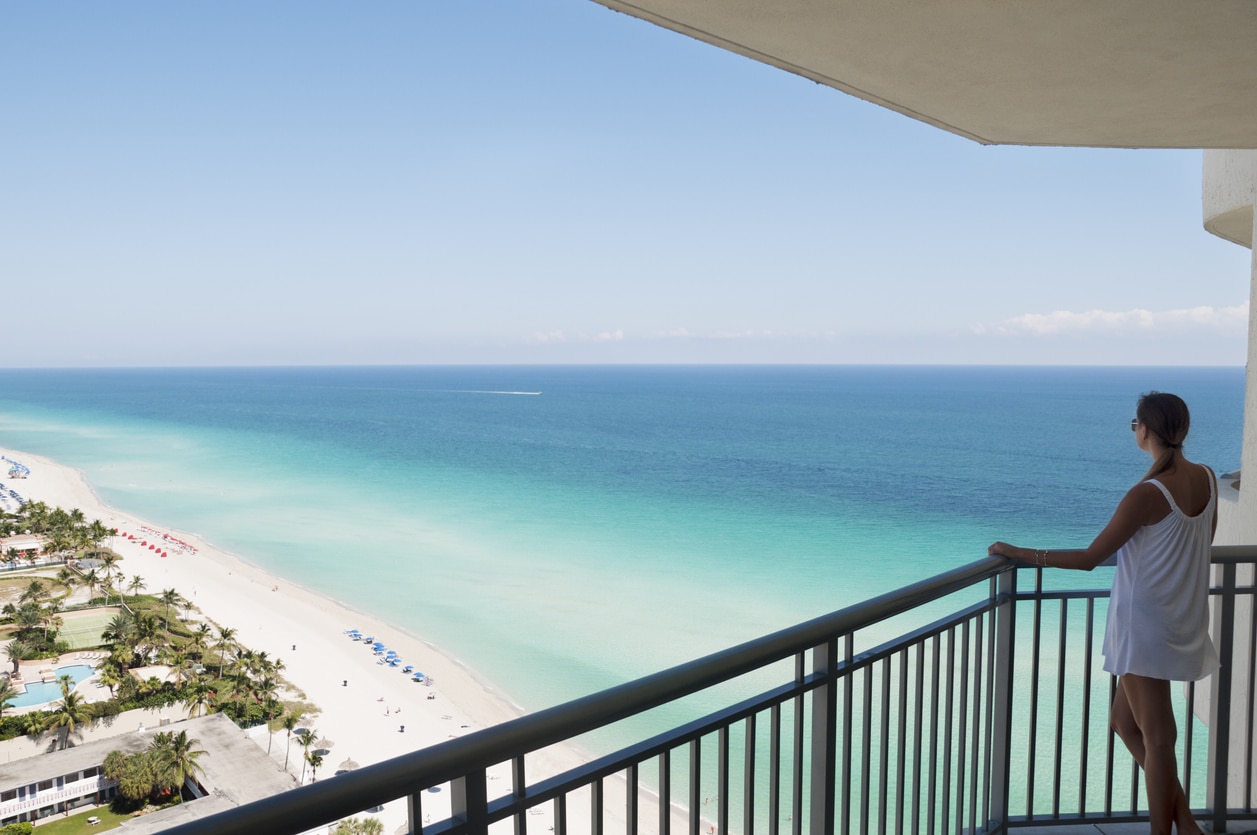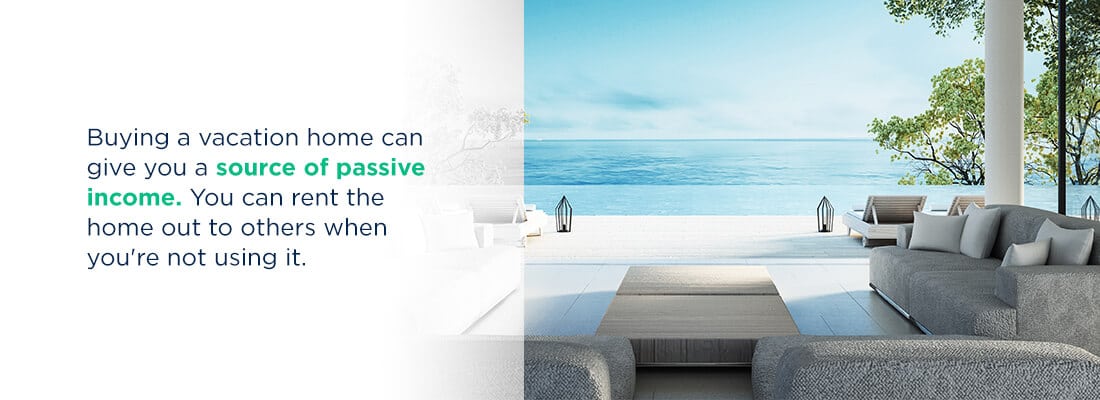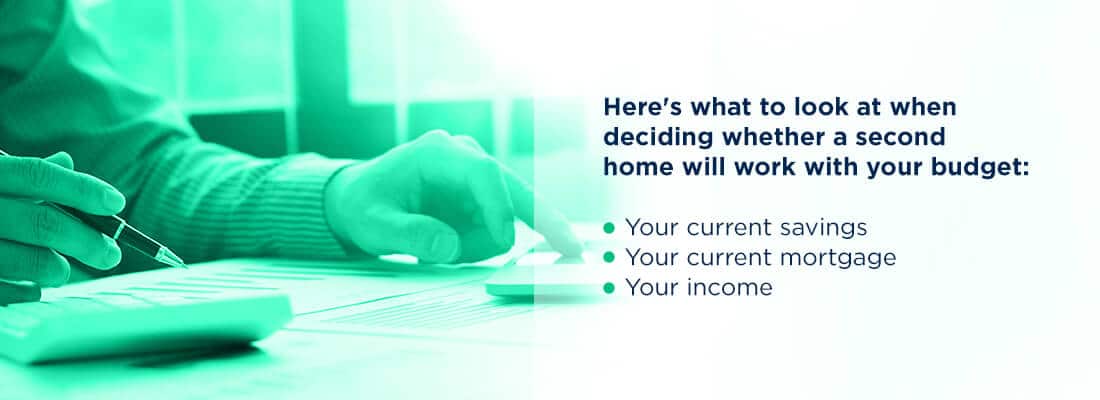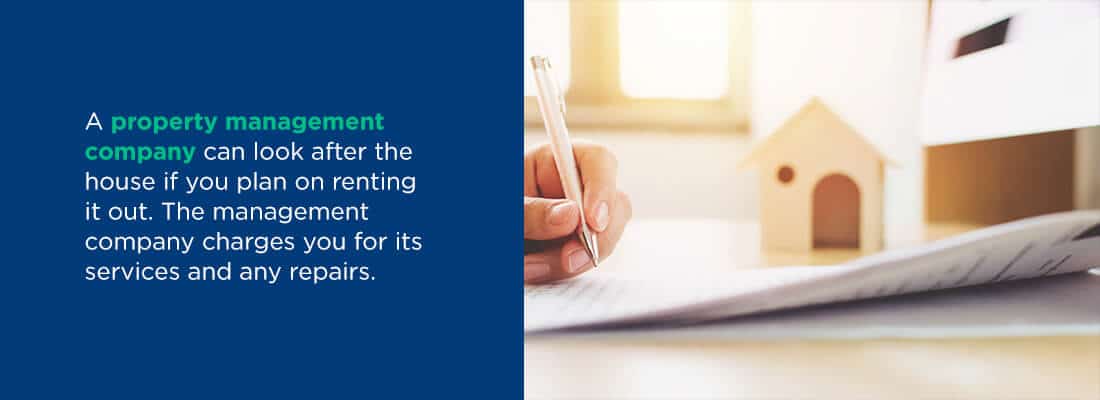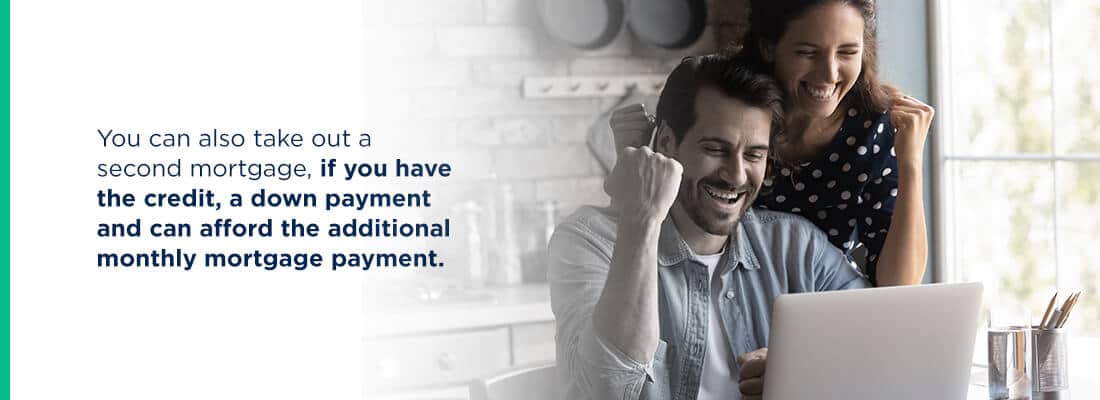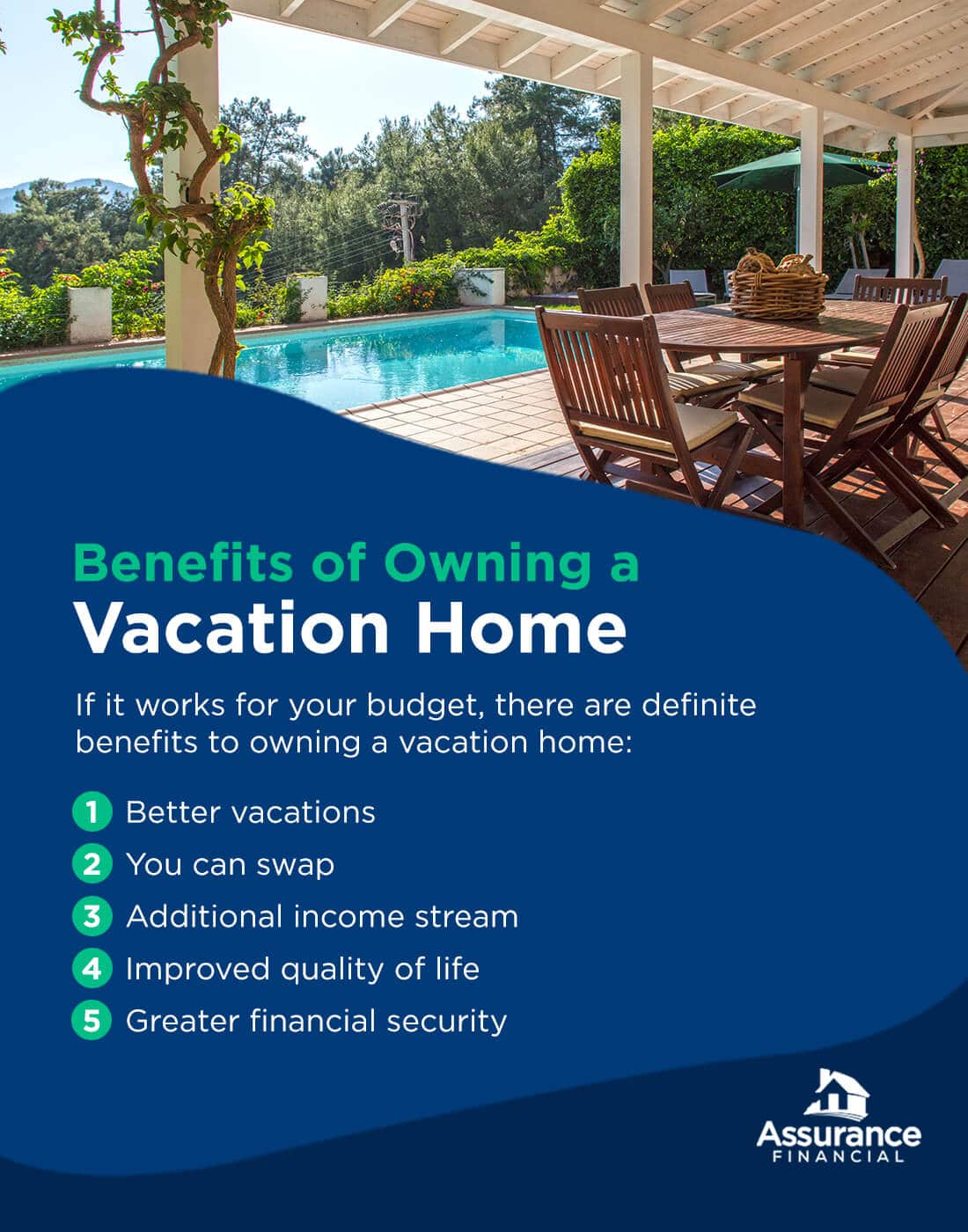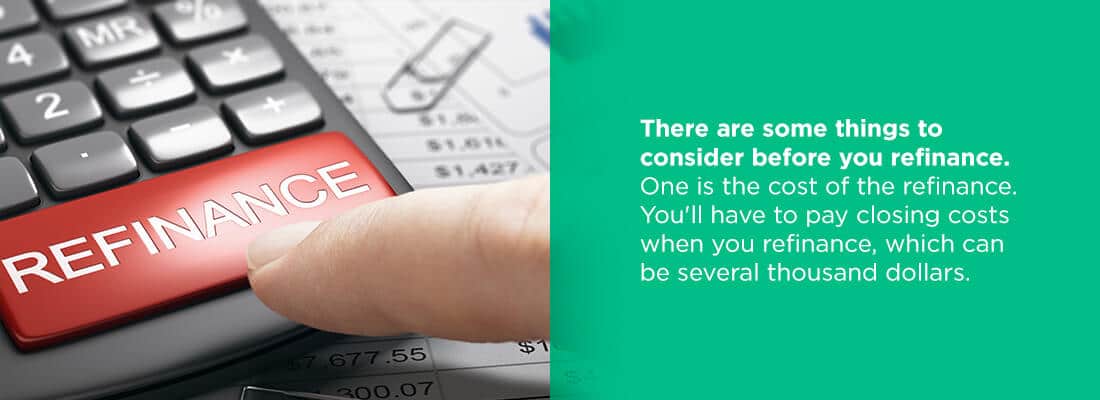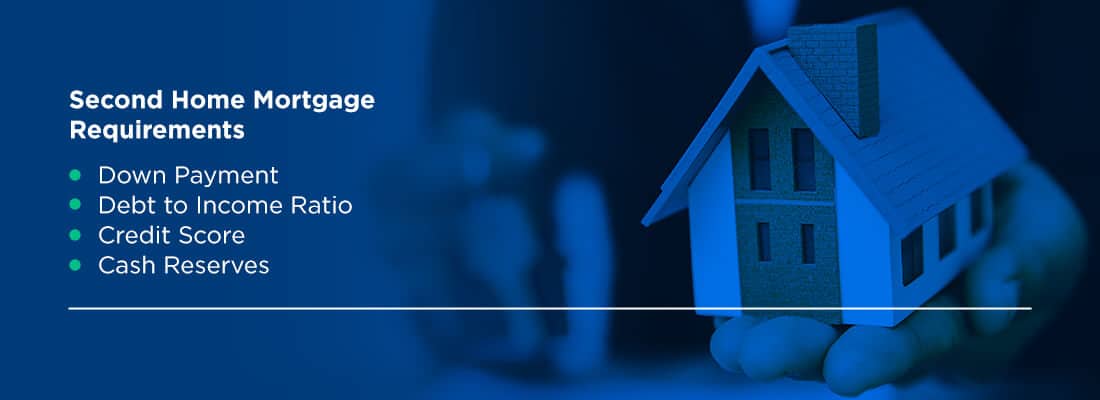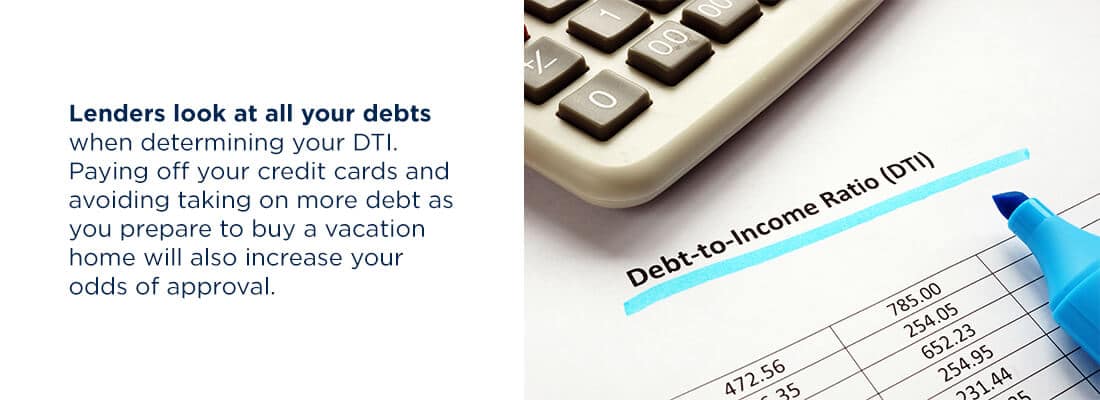Every year, your family enjoys a getaway in the mountains, at the beach or in a cabin in the woods. And, every year, you wonder if it’s finally time to buy a vacation property.
If you already have a primary residence, purchasing a second home can be an excellent investment. You have a guaranteed vacation spot each year and can rent the house out to bring in some extra income.
The process of buying a vacation home has some things in common with buying your first house. You want to put as much time and effort into finding your dream vacation spot as you did in finding the place you call home. There are a few differences between a vacation property and your primary home when it comes to financing a second property.
Why Buy a Vacation Home?
Buying a vacation home can make good financial sense for a few reasons. One reason is that it sets you up with a vacation spot for as long as you own the home. When you already own your vacation spot, you don’t have to pay for travel expenses such as hotels or rentals anymore, which can save you money over time.
Another reason is that buying a vacation home can give you a source of passive income. You can rent the home out to others when you’re not using it. Renting the property out can help you cover the cost of the mortgage or give you a little extra spending money.
Some people like to buy a property to use as a vacation home now and then move into the property full-time after they retire. If you dream of retiring to the beach or mountains, owning a property already gets you one step closer to achieving that dream.
Finally, you can look at a vacation home as an investment. Over time, the value of the home will likely increase. When your family is no longer interested in vacationing there, you can sell the property or continue to rent it out, generating an ongoing source of income.
Important Questions to Ask Before You Purchase a Vacation Home
Before you start the process of purchasing a vacation home, carefully weigh the pros and cons and ask yourself a few questions to make sure it’s the right option for you.
What’s Your Vacation Style?
Everyone has different vacation styles. Some people prefer to visit the same area yearly, such as the beach, woods or mountains. They like to build up traditions and enjoy the familiarity of staying in the same place.
Others prefer to see the entire world. They might spend a few weeks at the beach one summer, then head off to Europe for a backpacking vacation the next. These people prefer a varied, diverse vacation scene. They choose to visit all the popular vacation spots rather than stay in the same place.
If your vacation style is similar to the first one and you like to go to the same area every year, then buying a second home in that area can make sense. You won’t have to hunt around for a hotel or home rental every time you want to travel. If your style is closer to the second one, purchasing a vacation home might not be the best option for you at the moment.
Buying a vacation home can also make sense if you prefer to take longer vacations or if you want to go away several times during the year. When you own the property, you can easily spend a month or longer there. You can also visit whenever you want, provided you haven’t rented the space out.
Can You Afford a Second Home?
Two residences means two mortgage payments and two sets of property taxes. Buying a second property can stretch your budget depending on your current income and obligations.
Here’s what to look at when deciding whether a second home will work with your budget:
- Your current savings: Ideally, buying a second home won’t keep you from saving for retirement and other goals, such as your kids’ education. If you’re behind on saving for those milestones, waiting to purchase a second home can make sense.
- Your current mortgage: If you’ve nearly already paid off your mortgage, you may have the wiggle room in your budget to buy a second home. Similarly, if you have a lot of equity in your primary residence, you can borrow against it to buy a vacation home.
- Your income: You might have high expenses, such as a big mortgage payment, but at the same time, your income might be high enough to allow you to buy a second home without derailing your other financial goals.
Keep in mind that the cost of a vacation home can vary considerably based on location and size. If you’re comfortable buying a small property in a less popular vacation area, you might get a better price than if you purchased a home in a busier spot or wanted to buy a larger property.
Can You Rent Out the Home?
Unless you decide to make it your primary residence, a vacation home can provide a steady supplemental income stream. You can rent out the property during the weeks you don’t use it or during the low season to bring in some extra cash or help pay down the mortgage.
You’ll want to consider a few factors before you decide to rent out a vacation home, though. While renting the property out can help you pay down the mortgage, you might not want to rely on rental income to cover the second mortgage since you might not rent the property out enough to cover the costs.
Also, consider the effort involved in renting the property. If the vacation home is a considerable distance from your primary home, it can make sense to hire a property management company that’s closer to it. You want someone to be available to respond to the renters’ issues and take care of repairs as needed.
Who Will Take Care of the Home?
Similarly, it’s essential to think about who will care for the vacation home. Houses need regular upkeep. Otherwise, you might spend the first part of your vacation mowing the lawn or fixing leaking pipes.
A property management company can look after the house if you plan on renting it out. The management company charges you for its services and any repairs.
Another option is to hire a housekeeper or groundskeeper to look in on the property and take care of things as needed when you’re not there. The housekeeper can visit weekly during the off-season or when the home is unoccupied to ensure everything’s fine and clean surfaces or the exterior as needed. If you rent the home, the housekeeper can clean it between rentals.
What Are Property Taxes?
Along with paying for the property itself, buying a second home means paying another set of property taxes. Tax rates vary considerably based on location. It’s a good idea to look at taxes before you decide on an area.
The taxes in your dream spot might make owning a home there impractical. However, the taxes in the next town over or in a neighboring vacation locale might be much more reasonable.
How Will You Pay for the Home?
You have a few options for paying for your vacation home. If you have savings, you might pay for it in full, in cash. Another option is to refinance the mortgage on your primary home and use the proceeds from that to pay for a second home.
You can also take out a second mortgage, if you have the credit, a down payment and can afford the additional monthly mortgage payment. You might want to use the rental income from the property to cover the mortgage cost. A more reliable option is to ensure you can afford the mortgage without renting the property out. That way, you’ll always be able to pay the mortgage, even if no one is renting your vacation home.
Does Owning a Second Home Affect Your Taxes?
Buying a second home affects your taxes in a few ways. First, if you rent the property out, you’ll need to declare the rental income when you file your taxes. You might also be able to deduct expenses related to the rental, provided you meet the 14-day rule, meaning you don’t use it as a residence for more than two weeks or 10% of the number of days you rent it out.
Owning a second home can mean you can deduct the interest you pay on the mortgage, provided the total value of both mortgages is less than $750,000. You can deduct property taxes, too.
Benefits of Owning a Vacation Home
If it works for your budget, there are definite benefits to owning a vacation home:
- Better vacations: When you own a vacation property, your holidays can be longer and more affordable. Instead of spending $100 or $200 per night on a hotel or rental home, you’re building equity in your vacation property when you own the house. If you work remotely, you can easily spend the entire summer at your vacation home.
- You can swap: Owning a vacation property doesn’t limit your vacations to one geographic area. You might also sign up for a home exchange program that lets you swap homes with other vacation homeowners, giving you some variety.
- Additional income stream: Your vacation property can create an additional revenue stream for you, helping you build up a solid financial cushion. Just be sure to balance the cost of managing a rental property and the other tax responsibilities with the income it brings in.
- Improved quality of life: Owning your vacation spot can mean you see an improvement in your quality of life. If you’ve had a rough week at work, you can dash off to your cabin in the woods or your home by the shore for some much-needed relaxation.
- Greater financial security: A vacation home can be an investment that leads to greater financial security. You can sell the property later and enjoy a decent return on it. You can also use it as your primary home in retirement or pass it on to your children.
- Tax breaks: Owning two homes can mean more tax deductions, which can lower your tax bill and help you save more money.
How to Pay For a Vacation Home
If you’re not going to pay cash for your second home, you have a few options for financing a vacation property.
1. Cash-Out Refinancing
You can refinance your primary mortgage to either pay for your second home or come up with a down payment for your vacation home. When you apply for a cash-out refinance, you replace your existing mortgage with a larger one. The amount you can borrow is based on the market value of your home.
Here’s an example. You purchased your first home 15 years ago for $150,000. You still have about $30,000 left on the principal. Since then, the home’s value has increased to $350,000. The vacation home you’re interested in purchasing costs $175,000. You decide to refinance your home, borrowing 80% of its current value ($280,000).
Since the amount you’re borrowing is more than you owe on the mortgage, you receive $250,000 in cash. You can then use that cash to purchase your vacation home.
A cash-out refinance might not always provide you with enough to cover the entire cost of a second home. For example, if the value of your home hasn’t increased by much since you bought it, you might not have enough equity in your home to get that much cash when you refinance. Instead, you might be able to get enough money to cover the down payment then apply for a mortgage on the vacation home.
There are some things to consider before you refinance. One is the cost of the refinance. You’ll have to pay closing costs when you refinance, which can be several thousand dollars.
Another is the interest rate on the refinanced loan. Interest rates are still pretty low but might not be lower than what you’re currently paying, based on when you took out your first mortgage. You might end up with a higher rate than you started with, which means you’ll spend more on your mortgage over time.
2. Home Equity Loan
Another way to tap into your primary home’s equity and use it to buy a second home is through a home equity loan. While a refinance replaces an existing mortgage with a new one, a home equity loan is a second loan in addition to your mortgage.
The loan size depends on the amount of equity in your primary home. For example, if your home is currently valued at $300,000 and you owe $150,000 on your mortgage, your equity is $150,000. You can choose to borrow against the equity, taking out a home equity loan for $100,000. You’ll get the $100,000 in a lump sum, which you can then use to make a big down payment on a vacation home.
If your home is worth enough and you have enough equity, you might be able to borrow enough to cover the full cost of a second home.
Usually, you can borrow up to 80% of the equity in your home. Similar to refinancing, you’ll have to pay closing costs on a home equity loan, which can add up. Closing costs vary based on your location.
One drawback of a home equity loan is losing your home if you fall behind on payments. You’re borrowing against your home, and a lender might foreclose on it if you can’t make the payments on either your home equity loan or your primary mortgage.
3. Second Mortgage
Suppose you don’t have much equity in your current home or don’t want to put your primary residence up as collateral for your vacation home. In that case, another option is to take out a conventional mortgage for your vacation home.
Getting a second mortgage is different from getting your first mortgage in many ways. A lender will want to check your credit, verify your income and ensure you have a down payment. Usually, the lending requirements are stricter for a second home than for your first, particularly if you’ll have two mortgages simultaneously.
If you have a down payment saved up, have an excellent credit score and don’t owe too much on your first mortgage compared to your income, getting a second mortgage can be the way to go.
Vacation Home Mortgage Requirements
Lenders consider vacation homes to be somewhat riskier than primary residences. A borrower is more likely to default on a second property than on their primary home if they lose their job or otherwise can’t afford payments. For that reason, vacation home mortgage requirements are usually a little stricter than for a first home.
Here’s what you’re likely to need to take out a second home mortgage.
1. Down Payment
How much you need to put down on your vacation home depends on how you plan on using it. If you live there at least some part of the year, the lender may consider the home as a second residence and may require a slightly lower down payment. If you plan on renting the property out for much of the year, a lender is more likely to consider it an investment property and might require a down payment of 20% or more.
2. Debt to Income Ratio
Your debt to income ratio (DTI) compares how much you owe to how much you earn. The lower your DTI, the less risky you look to lenders. Paying off your primary mortgage before borrowing for a second home can help you lower your DTI and increase your odds of being approved for a loan.
Lenders look at all your debts when determining your DTI. Paying off your credit cards and avoiding taking on more debt as you prepare to buy a vacation home will also increase your odds of approval.
3. Credit Score
Your credit score matters when you want to take out a mortgage for a second home. It might matter more now than it did when you got your first mortgage, as some mortgage programs, such as the FHA, VA or USDA loan programs, accept buyers with less than excellent credit scores.
4. Cash Reserves
You might not have needed to have much cash in the bank to buy your first home. With a second home, it’s a bit different. Lenders usually like to see cash reserves — money in a savings account — worth at least two months of mortgage payments. Having some cash reserves gives the lender a little peace of mind that you’ll keep paying even if you hit a financial rough patch.
In many cases, a lender will look at the big picture when deciding whether to approve you for a second home mortgage or when determining the interest rate to offer you. For example, having a credit score in the excellent range might make up for having a high DTI. A big down payment might make up for limited cash reserves or a good, but not excellent, credit score.
Apply for a Second Home Mortgage Today
Assurance Financial can help you find the financing that works for you if you’re thinking about buying a vacation property. We offer refinancing as well as conventional mortgages.
To learn more and see what you qualify for, start the online application process with us today.

